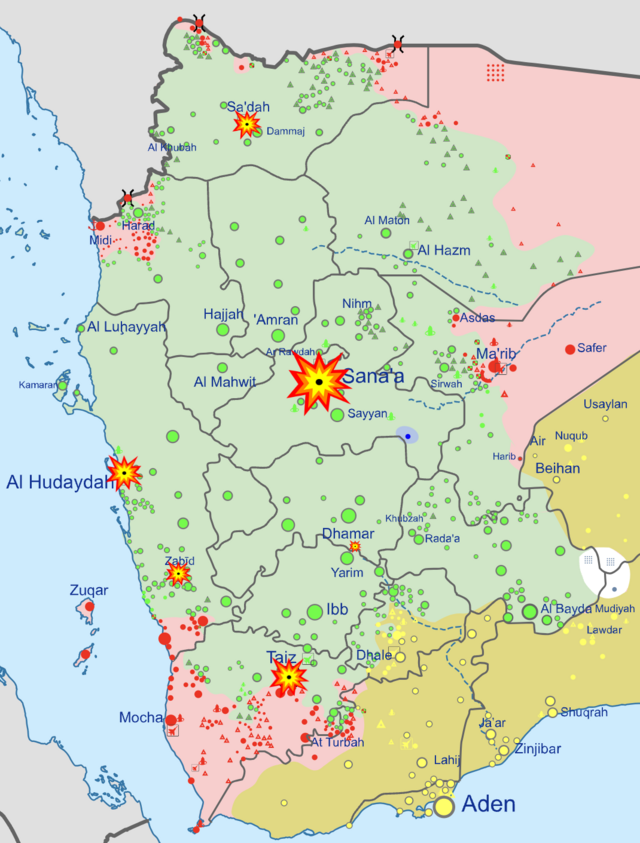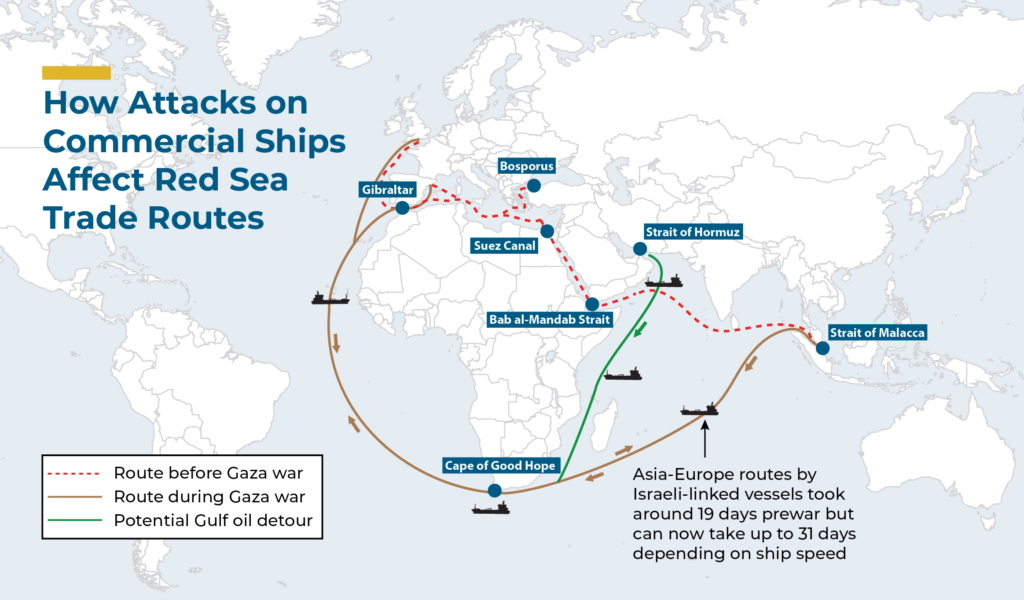Is President Biden’s Recent Attacks on Yemen's Houthi Rebel Group Constitutional?

By: Menal Elmaliki / Contributing Writer
On January 11th the U.S and UK militaries launched military attacks on Houthi targets in Houthi controlled areas in Yemen, targeting its military infrastructure. Biden’s administration has launched attacks on 16 Houthi Sites. The US Air Force have stated that it had “executed deliberate strikes on over 60 targets at 16 Iranian-backed Houthi militant locations, including command and control nodes, munitions depots, launching systems, production facilities, and air defense radar systems.” Weapons depots and launching systems were targeted in several provinces of Yemen, including the port city of Hodeida on the Red Sea and Saada, the capital Sana’a, and the home of Houthi leaders.

This comes after the militant’s months long aggression of targeting commercial ships in the red-sea. The U.S have warned them of serious consequences and have even formed a 10 nation coalition. The coalition has admitted to hitting over 60 targets with more than 100 precision-guided munitions at 16 Houthi militant locations.
What is the 10 nations coalition?
The Houthis have triggered a global response with the U.N Security Council passing a resolution on January 10 condemning the attacks and demanding they stop. In response to the rebel group’s increased drone and missile attacks on vessels in the Red Sea since the start of the war the United States has formed the 10-nation force. The 10 nation force, according to US Defense Secretary Llyod Austin, is a multinational security initiative that includes the U.S, U.K, Canada, France, Italy, Bahrain, etc. Austin goes on to state that the freedom of navigation is a foundational principle and if a non-state actor poses a challenge to this freedom collection action is demanded. The announcement of the coalition formed to protect maritime ships and international trade in the Red Sea, comes after the U.S and UK navies shot down 15 Houthi rebel drones.

Although the Houthis claim they only target ships linked to Israel or Israelis they have attacked the Norwegian-owned Swan Atlantic and the MSC Clara. The owner of Swan Atlantic, Chemical Tankers has stated that the vessel had no links to Israel and was managed by a Singaporean firm. The Houthi attacks have “effectively rerouted a significant portion of global trade” by forcing freight companies to sail around Africa. The rerouting has imposed higher costs, and a delay for energy, food and consumer goods deliveries. Due to this about 12 shipping companies, including France’s CMA CGM, Denmark’s AP Moller- Maersk, and the Italian- Swiss Mediterranean Shipping Company, and UK oil giant BP, have announced it would suspend transit through the Red Sea. The Red sea is a vital trade route, it connects to the Mediterranean Sea and it is 12 percent of global trade.

The Strikes
President Biden had ordered the strikes in response to the Houth’s 27 attacks on international maritime vessels, and British Prime Minister Rishi Sunak has stated that the air strikes were an act of self-defense, adding that the objective is to “de-escalate tensions and to restore stability to the region.” The U.S and U.K, combined with the support of Australia, Bahrain, Canada, and the Netherlands have, according to Biden “successfully conducted strikes against a number of targets in Yemen used by Houthi rebels to endanger freedom of navigation in one of the world’s most vital waterways.”
Although the strikes have been detrimental to Houthis, having killed 5 and wounded 6 leaders, Yahya Sare’e the rebel’s spokesperson has stated that the airstrikes will not deter future Houthi attacks on ships in the Red Sea and have even threatened retaliation.
A senior US military official told reporters that a significant percentage of Houthi assets were “destroyed,” going on to state that they did not target civilian populated areas, using precision guided munitions to strike specific locations and minimize collateral damage. Despite these cautionary measures, many democratic and republican lawmakers have strongly condemned the move, accusing Biden of violating article 1 of the constitution. President Biden did not seek permission from Congress before the launching strikes on 16 Houthi sites.
How Constitutional is Biden’s actions?

Biden’s actions have been called deplorable by some congress and representation members. Congresswoman Pramila Jayapal from the Democratic Party has called the attacks “unacceptable violation of the Constitution” in an X post.
Other congress members such as Cori Bush echoed her statements, writing on X, “ “The people do not want more of our taxpayer dollars going to endless war and the killing of civilians. Stop the bombing and do better by us.” Other lawmakers shared the sentiment, Rashida Tlaib, Mark Pocan, Ro Khanna took to social media to “denounce the military action as being in violation of Article 1.
Republican Texas Congressman had agreed with Biden’s strikes but disagreed with the way it was conducted, questioning the lack of congressional approval, “I am potentially fine with striking Yemen to defend critical shipping channel & response to aggression” and continued to state, “Under what authority was this carried out?”
While countries such as the Netherlands, Australia, Canada, and Bahrain are providing support for U.S and U.K’s attack on Houthi, others refuse to take part. The U.S led strikes have caused divisions in the West with Italy, Spain, and France refusing to participate in the attacks as well as justify. France believes it will cause more tensions between Hezbollah and Israel. The strikes are a “significant escalation and part of the growing regional impact of the Israel-Hamas war, which the United States has been actively trying to prevent from turning into a regional war.”

The escalation in Yemen can effect the regional interest of U.S allies, Saudi Arabia and the United Arab Emirates who have gains in Yemen. The escalation can also disrupt the “fragile truce” between Saudi Arabia and the Houthis and “rekindle conflict.” U.S. Special Envoy for Yemen Tim Lenderking highlighted that progress is being made in Yemen and Saudi Arabia can’t afford to lose their peace negotiations with the rebel group especially after a brutal decade long war.

Peace with Yemen is crucial for Prince Mohammad Bin Salman’s Vision 2030 agenda for social and economic reform. The U.S seems stuck having the difficult task of preventing a regional conflict, an escalation in the Middle East and preserving the safety of international trade especially recently with Houthis retaliating and claiming responsibility for another missile attack on a cargo ship in the Red Sea.
Check out our Blog here!



